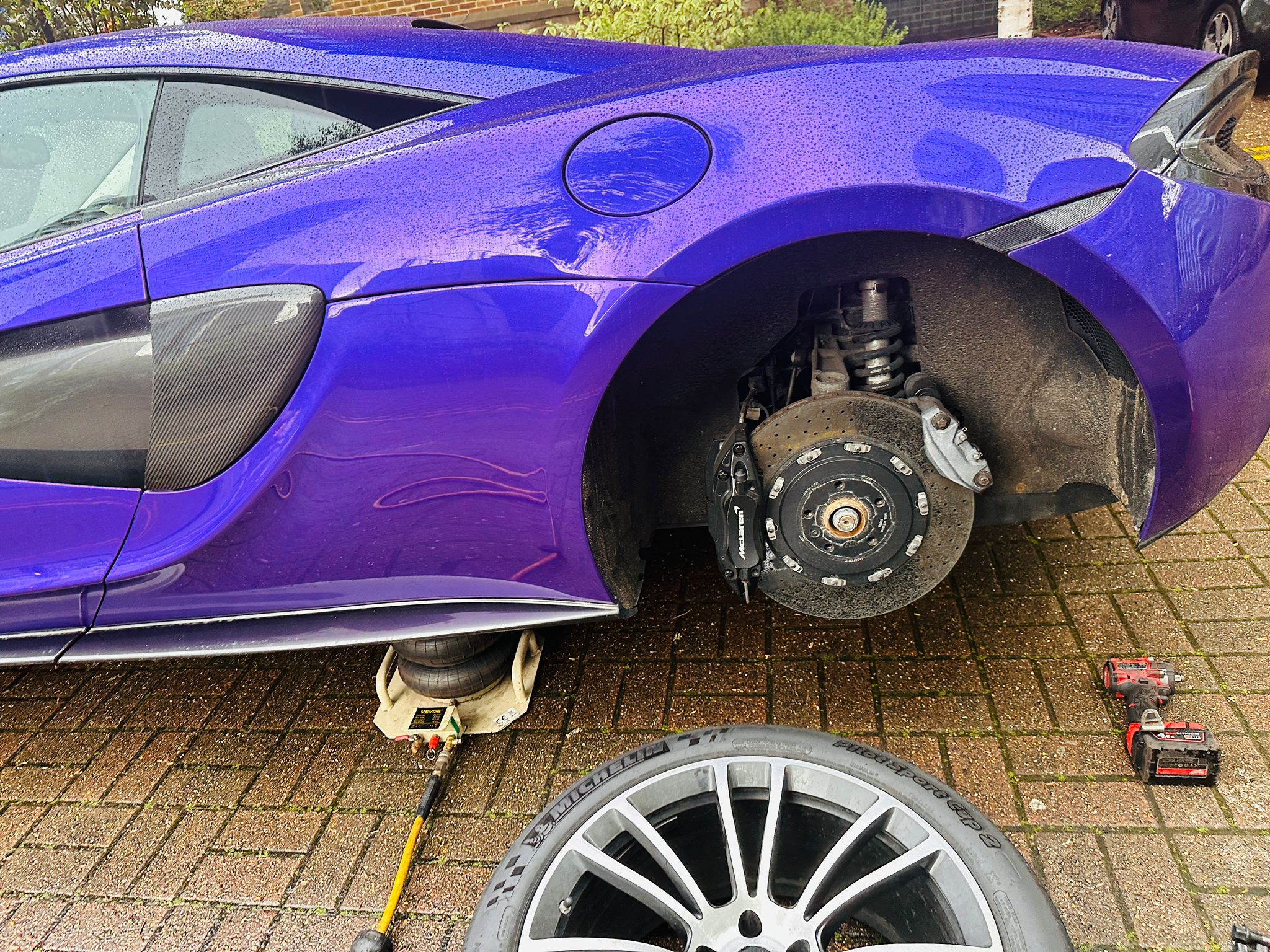
BackLink Master Asif Khan
City of London, Greater London
BackLink Master Asif Khan
2 years ago
If you are a car owner then you should read this....
Owning a car comes with the responsibility of ensuring it stays in good condition. Regular repair and maintenance are crucial for your vehicle's performance, safety, and longevity. This comprehensive guide will walk you through the essential aspects of car repair and maintenance, helping you keep your vehicle running smoothly and efficiently.
The Importance of Car Repair and Maintenance
Regular car repair and maintenance offer several benefits:

- Prevent costly repairs: Identifying and fixing minor issues early can save you from expensive repairs down the line.
- Maintain performance: Regular maintenance ensures your vehicle operates at its optimal level, providing a smooth and enjoyable driving experience.
- Enhance fuel efficiency: A well-maintained car consumes fuel more efficiently, saving you money on gas.
- Improve safety: Regular checks and repairs reduce the risk of accidents caused by mechanical failures.
- Preserve resale value: A well-maintained vehicle retains its value longer, making it easier to sell or trade in the future.
Essential Car Repair and Maintenance Tasks
1. Regular Oil Changes
Oil is the lifeblood of your engine, providing lubrication and reducing friction between moving parts. Over time, oil breaks down and becomes less effective, leading to increased wear and tear on your engine. Regular oil changes are crucial for maintaining your engine's performance and preventing costly repairs.
Frequency: Most manufacturers recommend oil changes every 3,000 to 7,500 miles, depending on the type of oil used and your driving conditions. Consult your owner's manual for specific recommendations.
2. Fluid Checks and Top-ups
Your vehicle relies on various fluids to operate correctly, including coolant, brake fluid, car valeting services power steering fluid, and transmission fluid. Regularly checking and topping up these fluids is essential for maintaining your vehicle's performance and preventing damage.
Frequency: Check fluid levels at least once a month and top up as needed. Consult your owner's manual for specific recommendations on when to replace each fluid.
3. Tire Maintenance
Tires play a vital role in your vehicle's handling, performance, and safety. Regular tire maintenance includes checking air pressure, rotating tires, and inspecting for wear and damage.

- Air pressure: Underinflated or overinflated tires can lead to uneven wear, reduced fuel efficiency, and compromised handling. Check your tire pressure at least once a month and adjust as needed. Refer to your owner's manual or the sticker inside your driver's door for the recommended pressure.
- Rotation: Rotating your tires helps ensure even wear and prolongs their life. Most manufacturers recommend rotating tires every 5,000 to 8,000 miles, but consult your owner's manual for specific guidance.
- Inspection: Regularly inspect your tires for signs of damage, such as cracks, bulges, or punctures, and address any issues promptly.
4. Brake Maintenance
Your vehicle's braking system is critical for safety and should be regularly inspected and maintained. Key components to monitor include brake pads, rotors, and brake fluid.
- Brake pads: Worn brake pads can compromise stopping ability and cause damage to other brake components. Inspect your brake pads regularly and replace them when they reach their minimum thickness (usually around 1/8 inch).
- Rotors: Rotors can become warped or damaged over time, leading to reduced braking performance and vibrations when braking. Have your rotors inspected during brake pad replacement and replace them as needed.
- Brake fluid: Brake fluid should be checked and topped up as part of your regular fluid checks. Replace the brake fluid according to your vehicle manufacturer's recommendations, typically every two years or 30,000 miles.
5. Battery Maintenance
A dead battery can leave you stranded and cause damage to your vehicle's electrical system. Regular battery maintenance involves checking the battery's charge, cleaning the terminals, and ensuring secure connections.
Frequency: Inspect your battery every three months, particularly in extreme temperatures. Most car batteries last between three and five years, so consider replacing yours if it's nearing the end of its lifespan.
6. Belts and Hoses Inspection
Belts and hoses play a crucial role in your vehicle's operation, driving components like the alternator, water pump, and power steering. Regularly inspect belts for cracks, fraying, or looseness, and check hoses for leaks, bulges, or cracks.
Frequency: Inspect belts and hoses at least twice a year, and replace them according to your vehicle manufacturer's recommendations.
7. Suspension and Steering System Maintenance
Your vehicle's suspension and steering systems are crucial for a comfortable ride and precise handling. Regularly inspect components such as shock absorbers, struts, and ball joints for signs of wear or damage, and have your vehicle's alignment checked to ensure proper tire contact with the road.
Frequency: Have your suspension and steering systems inspected during routine maintenance visits, and address any issues promptly to prevent further damage.
When to Seek Professional Help
While many car repair and maintenance tasks can be performed by the average driver, some issues require the expertise of a professional mechanic. If you notice any of the following warning signs, it's time to schedule a visit to your local repair shop:
- Unusual noises, such as grinding, squealing, or knocking
- Persistent dashboard warning lights
- Decreased performance or fuel efficiency
- Unexplained vibrations or pulling to one side while driving
- Fluid leaks or puddles under your vehicle
By staying vigilant and addressing issues promptly, you can prevent more significant problems and maintain your vehicle's performance, safety, and value.
Conclusion
Car repair and maintenance are essential for keeping your vehicle in top condition and ensuring a safe and enjoyable driving experience. By following the guidelines outlined in this comprehensive guide, you can protect your investment, save money on costly repairs, and enjoy many miles of worry-free motoring. Remember that preventative maintenance is key, so don't wait for problems to arise before taking action. Stay proactive and keep your vehicle running smoothly for years to come.
0 likes · 0 comments
BusinessDo you want to manage your own group?


